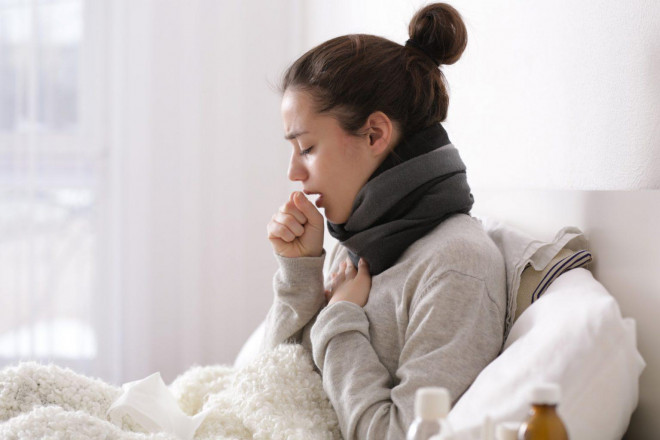In order not to worry post-COVID-19, FO needs to do the following-Health of life
The best way to protect yourself from post-COVID-19 situations is to stay away from transmitting the virus, get full vaccinations, follow public health measures…
According to the World Health Organization (WHO), most people with COVID-19 Most people make a full recovery, but scientific studies show that about 10%-20% of people experience the medium to long-term effects of COVID-19 after they recover from their illness. These medium and long term effects are collectively known as the post-COVID-19 situation.
Signs to recognize F0 after COVID-19
According to medical experts, there are many post-COVID symptoms that patients can face:
Illustration
People infected with Covid-19 after recovering from the disease may still face a series of symptoms and long-lasting sequelae such as low-grade fever, shortness of breath, prolonged cough, fatigue, muscle and joint pain, hair loss, pulmonary fibrosis, palpitations. or heart palpitations, endocrine disorders, blood clots… There are cases of digestive disorders (loss of appetite, loss of appetite, stomach pain, diarrhea…), taste or smell disturbances, sensations, rashes…
Patients in the post-Covid-19 period may also experience neuropsychiatric symptoms such as psychological disturbances, decreased concentration, anxiety, depression, restlessness, sleep disturbances, forgetfulness, inability to concentrate; frequent brain fog, poor perception, slow reading, short term memory loss, mood swings.
For people with pre-existing medical conditions such as cardiovascular disease, diabetes, especially respiratory diseases, chronic obstructive pulmonary disease (COPD), chronic bronchitis, etc., when Covid-19 occurs in the background of those diseases, it can cause capital damage. heavy.
Some people who recover from severe COVID-19 may experience long-term adverse multi-organ effects or autoimmune disease, accompanied by symptoms for weeks or months.
Not only expressed by the above clinical symptoms, patients can also appear subclinical disorders such as prolonged increase in cardiac enzymes, blood sugar disorders, thyroid hormone disorders, decreased glomerular filtration rate; respiratory dysfunction (reduced pulmonary diffusion, limited lung capacity; abnormal imaging, pulmonary fibrosis, bronchiectasis on chest CT scan), ventricular dysfunction on echocardiography…
How to protect yourself from COVID-19?
According to medical experts, the best way to protect yourself from a post-COVID-19 situation is to avoid contracting the virus in the first place. It is also important to fully vaccinate, adhere to public health measures, in particular:
– Keep a minimum distance of 1 meter from other people
– Wear a mask that fits your nose and mouth
– Keep the environment well ventilated
– Cough or sneeze into your elbow
– Wash your hands frequently
– Get vaccinated as soon as it’s your turn.

Illustration
What should F0 do after it becomes negative?
Even after recovering from Covid-19, patients need to continue to monitor and improve their overall health, rehabilitation, physical therapy, nutrition and mental care, sleep:
Breathing exercises: Inhale, exhale slowly, inhale slowly deeply and exhale slowly without rushing, and the speed is increasing day by day.
Doing exercises: Daily light exercise such as walking slowly, doing light exercise, cycling very slowly, practicing nutrition. Work out according to the workout program on TV every morning at 5, if you’re training alone you should ensure 30 minutes every day.
Walk: A 2011 study found that healthy adults can walk between 4,000 and 18,000 steps per day, depending on need. However, the goal of 10,000 steps a day is quite appropriate for a healthy adult.
Correct nutrition: It is recommended to divide the meals into 3-5 times per day depending on the patient’s appetite and incorporate various foods in the diet, should eat more vegetables and fruits, drink enough water, drink more fruit juices, drink milk, eat ripe bananas for supplement potassium. Eat foods rich in micronutrients such as fish, shrimp, crab, oysters, clams, etc.
Mental health care: Get enough sleep, listen to music, relax and exchange information with people around to get back to normal.
at Blogtuan.info – Source: 24h.com.vn – Read the original article here





